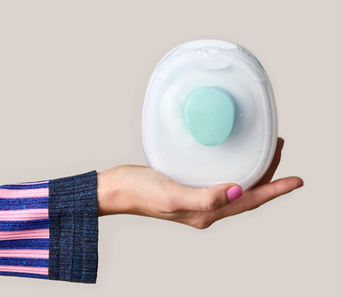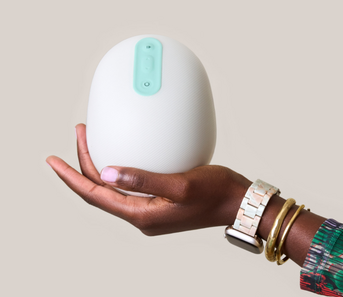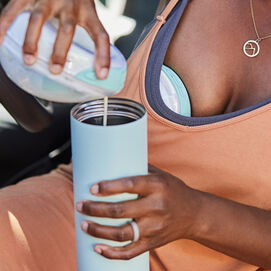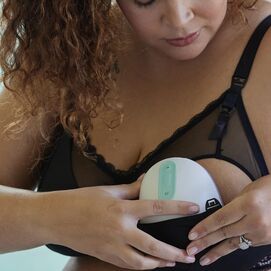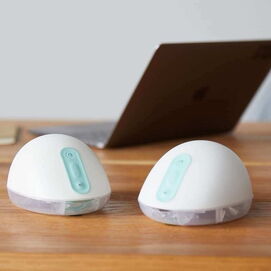As a new mom, we know you want to do what’s best for your sweet babe. But, there’s so much information out there about what you “can” and “can’t” do while you breastfeed, that it can get overwhelming—fast.
We totally get it and want to try and help you out. Here, you’ll hopefully find some clarity on what substances could harm you or your baby, so you can make the best decision for both of you.
Important Note: Hey, it’s important to note that the term “drug” used here means medicine or other substances that may have any kind of effect on your body, whether it’s for pain relief or some much-needed mama energy.
How Do Chemicals Affect Breastfeeding?
All mamas are at risk for exposure to chemicals during pregnancy and breastfeeding. This is especially true for moms who work outside the home in industries where chemicals are used.
According to the CDC, various types of chemicals can get into breast milk, including:
- Lead and mercury
- Organic solvents and chemicals such as those found in paint
- Chemicals from smoke and fire
- Radioactive chemicals
Some of these chemicals can harm your baby if high levels exist. For example, lead can affect your baby’s brain and nervous system.
The good news is that the benefits of breastfeeding typically outweigh the potential for chemical exposure. And according to the CDC, most working mamas can safely breastfeed their babies with confidence.
If you do work around these chemicals or if you feel you’ve been exposed, it’s important to talk to your doctor to discuss your next steps and what you can do to limit your exposure in the future.
Breastfeeding & Alcohol
According to the CDC, drinking alcohol isn’t necessarily a reason to stop breastfeeding. But, drinking more than one alcoholic drink per day isn’t recommended. Alcohol can be found in breast milk, especially if consumed in large amounts.
Effects on You
That hangover headache means so much more when somebody depends on you for everything. You’re already tired and excessive alcohol can make you even more so. It can also impair your judgment.
If you want to have a mimosa with your besties, go for it. Just be sure to remember the importance of your wellbeing when it comes to protecting and caring for your baby.
Effects on Your Baby
One standard drink per day isn’t known to cause harm to breastfed babies. But, it’s important that you use previously expressed breast milk to feed your baby or wait two hours to feed your baby after that wine.
Excessive drinking can affect your baby. It could directly affect your baby’s growth, development and sleeping patterns. It can also decrease the amount of breast milk you’re able to make.
Breastfeeding & Caffeine
Caffeine shows up in breast milk quickly after you have that cup of coffee or soda. The NCBI says that a safe level of caffeine is around 300 to 500 mg a day or around two cups of coffee.
Effects on You
Every mama needs a boost when it comes to nursing an infant, especially in those first few months. Having your cup of coffee in the mornings is perfectly safe, so long as you feel comfortable doing so.
Drinking way too much caffeine in a day can result in symptoms such as increased anxiety, trouble sleeping and high blood pressure.
If you’re struggling with fatigue that’s hindering your time with your baby, please speak to your doctor to see if something else could be going on.
Effects on Your Baby
According to the NCBI, high amounts of caffeine can result in fussiness, jitteriness and poor sleep patterns for your baby. It’s also possible that high levels of caffeine can decrease breast milk iron levels, which may result in anemia in some babies.
Remember, caffeine comes from other sources beyond that iced coffee. Caffeine exists in tea, soft drinks and even chocolate. It’s important to take care of your body while breastfeeding, and that includes eating healthy foods that help with breast milk supply.
Breastfeeding & Pain Medication (Ibuprofen, Advil & Acetaminophen)
Wondering if that pill is safe to take for that killer headache? Rest assured, some medications are completely safe during breastfeeding. Yet, there are others you should avoid.
Ibuprofen is considered safe for breastfeeding mothers as low levels are typically absorbed into breast milk. It’s considered safe for infants, as the amount your baby may take in through your milk is much less than the safe dose.
Tylenol or acetaminophen is also considered safe for breastfeeding mothers and their babies. Any amount in the breast milk will be much lower than the dose usually given to babies.
Effects on You
The only effect ibuprofen or acetaminophen should have on you, mama is pain relief. Yet, it’s important to note that your body is changing, especially after birth. If you take any kind of medication and then experience abnormal symptoms, reach out to your doctor.
It’s important to note that you must stick with the recommended dosages for the medications you take. Any additional medication could cause adverse effects.
Effects on Your Baby
Any medication you take will be found in your breast milk. But, as we mentioned above, ibuprofen and acetaminophen are typically found in such small amounts that they’re considered safe for your baby.
Other medications for pain should be avoided while breastfeeding, such as those considered to be narcotics like hydrocodone. These drugs can cause drowsiness, issues with your baby’s central nervous system and even death.
It’s also best to avoid taking any kind of herbal supplements while breastfeeding, as many contain herbs that are harmful to your milk supply and baby.
A reaction to any kind of medication can’t be ruled out when breastfeeding. Keep an eye on your baby after taking any kind of medication. If you notice sleepiness, fussiness, a rash or any other symptoms, call your baby’s doctor.
Breastfeeding & Other Common Drugs
Tobacco
Tobacco products include nicotine and other harmful chemicals. These chemicals are often found in breast milk and are known to decrease breast milk supply.
When nicotine and other chemicals are passed through breast milk, babies often experience fussiness, nausea and restlessness. And according to the CDC, maternal smoking is a risk factor for Sudden Infant Death Syndrome (SIDS), regardless of whether they’re breastfeeding or bottle-feeding.
While the CDC considers it safe to breastfeed and smoke due to the benefits of breastfeeding, they also recommend mothers find ways to quit.
CBD Products
The CDC recommends breastfeeding moms stop using marijuana or cannabidiol-containing products while breastfeeding. Harmful chemicals can possibly be passed through to your baby through your breast milk or secondhand smoke.
Currently, there isn’t enough data to determine the safety of marijuana or cannabidiol-containing products for breastfeeding mamas and babies. However, it is known that certain chemicals found inside these products may affect a baby’s neurodevelopmental processes.
According to the FDA, breast milk can contain THC for up to six days after use. THC may affect your baby’s brain development and result in hyperactivity, poor brain function and other consequences.
What’s best for you and your baby is what keeps you both happy and healthy. If you have concerns about what’s safe and what’s isn’t, don’t be afraid to speak with your doctor or your baby’s pediatrician.
Learn More About Breastfeeding With Willow
Still have questions about breastfeeding and your body? Looking for some advice from other fellow mamas and breastfeeding experts? Willow is here to help. Check out our blog and make breastfeeding simpler with the wearable Willow pump.


